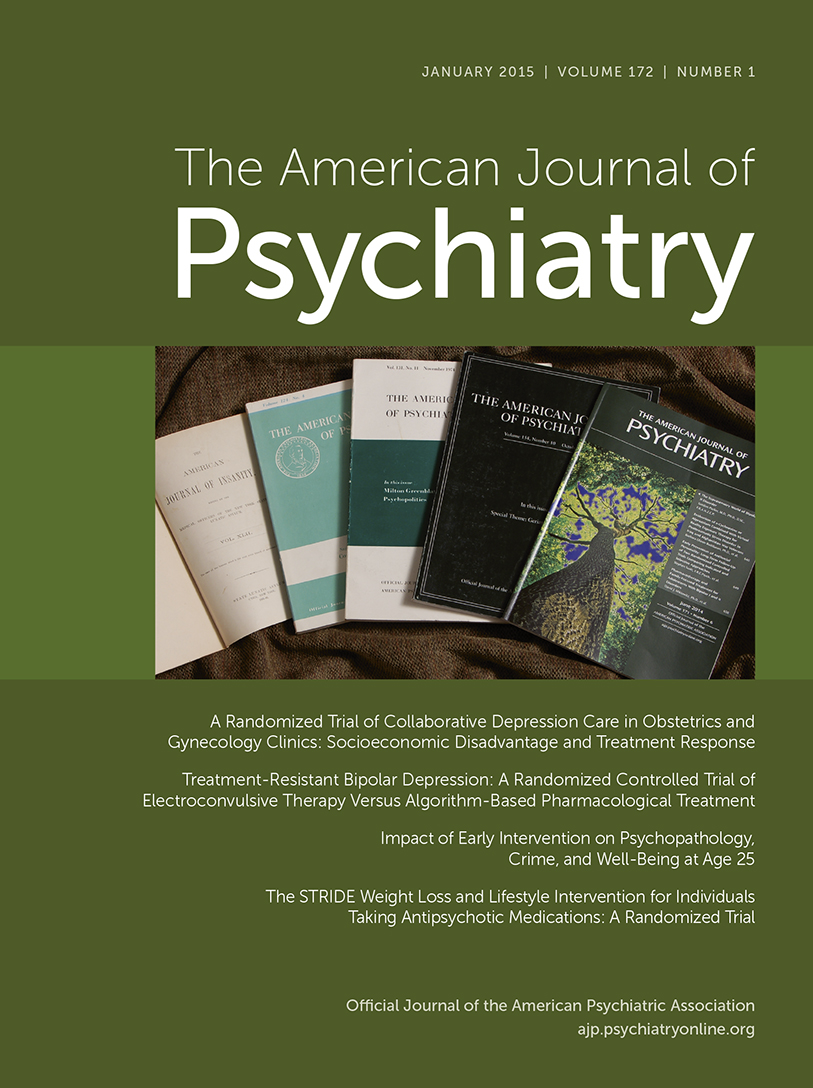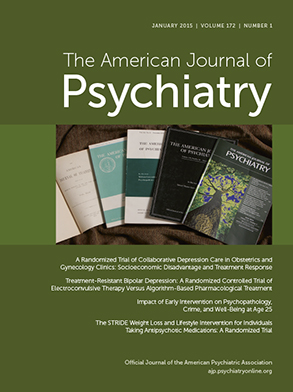No Evidence for GADL1 Variation as a Bipolar Disorder Susceptibility Factor in a Caucasian Lithium-Responsive Cohort
| Lithium Response Status of Family | Chromosome | Position | Reference Allele | Mutant Allele | Gene | Variant Type | Total Wild-Type | Total Affected With Variant | Total Controls With Variant | Family Affected Wild-Type | Family Affected With Variant | Single-Nucleotide Polymorphism Database Identification | 1,000 Genomes | Exome Variant Server |
|---|---|---|---|---|---|---|---|---|---|---|---|---|---|---|
| Familial whole genome sequencingb | ||||||||||||||
| Responder | 3 | 30769819 | C | T | GADL1 | Missense | 56 | 1 | 1 | 0 | 1 | rs62636628 | 0.01 | 0.017 |
| Responder | 3 | 30875361 | A | G | GADL1 | Missense | 57 | 1 | 0 | 0 | 1 | n.a. | n.a. | n.a. |
| Validation: familial whole exome sequencingc | ||||||||||||||
| Eight families (responders, N=4; nonresponders, N=4) | 3 | 30769819 | C | T | GADL1 | Missense | 862 | 17 | 33 | 19 | 11 (responders, N=5; nonresponders, N=6) | rs62636628 | 0.01 | 0.017 |
| Responder | 3 | 30769819 | C | T | GADL1 | Missense | 785 | 1 | 10 | 6 | 1 | n.a. | 0.0018 | 0.005 |
| Responder | 3 | 30936097 | C | G | GADL1 | Missense | 103 | 1 | 0 | 3 | 1 | n.a. | n.a. | n.a. |
| Validation: familial whole exome sequencingd | ||||||||||||||
| 3 | 30885653 | GC | G | GADL1 | Intronic | 456 | 1 | 32 | n.a. | n.a. | n.a. | 0.06 | 0.003 | |
Supplementary Material
- View/Download
- 101.06 KB
References
Information & Authors
Information
Published In
History
Authors
Competing Interests
Metrics & Citations
Metrics
Citations
Export Citations
If you have the appropriate software installed, you can download article citation data to the citation manager of your choice. Simply select your manager software from the list below and click Download.
For more information or tips please see 'Downloading to a citation manager' in the Help menu.
View Options
View options
PDF/EPUB
View PDF/EPUBLogin options
Already a subscriber? Access your subscription through your login credentials or your institution for full access to this article.
Personal login Institutional Login Open Athens loginNot a subscriber?
PsychiatryOnline subscription options offer access to the DSM-5-TR® library, books, journals, CME, and patient resources. This all-in-one virtual library provides psychiatrists and mental health professionals with key resources for diagnosis, treatment, research, and professional development.
Need more help? PsychiatryOnline Customer Service may be reached by emailing [email protected] or by calling 800-368-5777 (in the U.S.) or 703-907-7322 (outside the U.S.).

